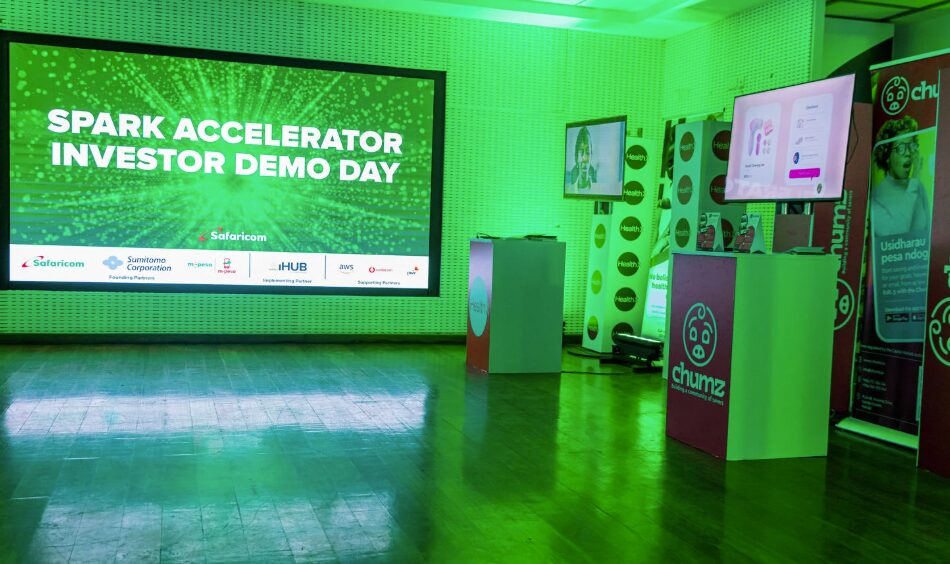A fresh wave of venture activity gathered pace this week as ten early-stage companies moved into an intensive growth pipeline under the Spark Accelerator, with organisers steering capital, technical expertise, and distribution capacity toward sectors that shape Africa’s digital economy and carry growing influence over employment, financial access, and enterprise productivity across the region.

Safaricom referenced the cohort as a continuation of corporate-venture collaboration on the continent, with more than 200 founders having competed for slots in the three-month program that prepares startups for investor engagement and product integration at commercial scale.
Safaricom, which trades on the Nairobi Securities Exchange with millions of active customers and wide mobile-money reach through M-PESA, confirmed that the selected ventures, Mediakits.Io, WePlay Arcade, GoPay, FlexPay, QuePay, Leta.AI, Oye, DigiTax, Incourage Insurance Agency Limited, and StockApp, will train under two structured tracks supported by iHUB and corporate engineering teams.
Organizers pointed to embedded finance, creative-economy services, future fintech, and small-business productivity tools as priority categories, aligning the accelerator with market bottlenecks that influence transaction costs, digital content monetisation, and data-driven decision-making for enterprises.
These value chains now support thousands of Kenyan merchants and represent a growing slice of cross-border payments and creator-driven commerce.
“We aim to nurture, grow, and scale commercially viable tech start-ups that drive positive societal impact. We have broadened our scope of support to early-stage startups that fit the criteria, to include technology and product development support, access to market and access to capital,” said Dr. Peter Ndegwa, Chief Executive Officer at Safaricom, explaining the program’s purpose.
The format embeds founders in expert advisory sessions while giving them access to corporate technical assets, such as Daraja and M-PESA Africa Open APIs, that shrink product-integration cycles.
This approach addresses friction that founders frequently encounter when building on payment rails or designing services for distributed user bases across East Africa.
The accelerator will culminate in a February 2026 investor Demo Day, where founders pitch to venture funds and network with potential enterprise partners, a step that can unlock follow-on capital in the Ksh 20,000,000 to Ksh 150,000,000 range depending on sector and traction.
Graduates then receive nine to twelve months of post-acceleration support, giving founders room to test pricing, expand sales funnels, and deploy compliance frameworks that align with regional regulatory requirements.
Safaricom runs the program in partnership with M-PESA Africa and Japan’s Sumitomo Corporation, while iHUB implements curriculum design with support from Vodacom, PwC, and Amazon Web Services, which offers cloud credits to offset infrastructure costs.
“Africa’s innovation and creative ecosystems need financing models that go beyond current traditional financing sources. Corporate accelerators bring the resources, infrastructure, and market access of established companies into direct partnership with startups,” said Ojoma Ochai, Managing Director at iHUB and Co-creation HUB, explaining the rationale.
According to cohort-one outcomes, the first intake produced measurable expansion: Twiva onboarded more than 11,000 influencers through Safaricom Hook; Chpter extended AI-commerce tools into South Africa and Nigeria; HealthX Africa lifted its subscriber base by 40 percent in six months; Chumz surpassed 300,000 users through gamified savings and entered Rwanda; and BlackRhino’s joint campaign with Safaricom’s brand team won Best Emerging Technology in Marketing at the 2024 Marketing Society of Kenya awards. These ventures continue to explore commercial opportunities with Safaricom business units.
For market analysts, such results suggest growing demand for corporate-backed acceleration in an environment where startups must navigate rising cloud costs, data-protection obligations, and fragmented market entry rules across the continent.
Access to enterprise-grade infrastructure remains expensive for founders, while distribution networks often determine whether new services achieve scale beyond early adopter clusters in Nairobi.
Programs that compress integration time, reduce technical debt, and streamline go-to-market pathways can lift revenue potential while strengthening investor confidence during due-diligence phases.
Through iHUB’s Pan-African innovation network, founders enter guild-like communities that share product knowledge, legal templates, and procurement guidance, a model that improves resilience when founders shift into unfamiliar markets.
AWS cloud credits reduce early-stage burn rates, giving engineering teams bandwidth to iterate without over-allocating scarce capital.
As Kenya weighs regulatory adjustments for digital payments, content monetisation, and data governance, sector watchers argue that corporate accelerators remain relevant platforms for aligning entrepreneurship with national development priorities.
The second Spark Accelerator cohort now enters execution mode, and investor attention turns to product traction, cross-border readiness, and the founders’ ability to translate mentorship into repeatable revenue.
The market will assess whether this edition sustains the momentum established by cohort one while deepening Africa’s stake in global innovation cycles.
Kenyan Business Feed is the top Kenyan Business Blog. We share news from Kenya and across the region. To contact us with any alert, please email us to [email protected]













